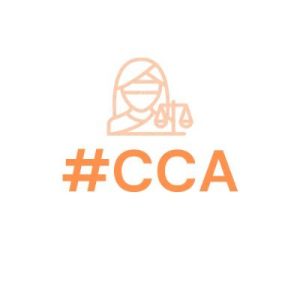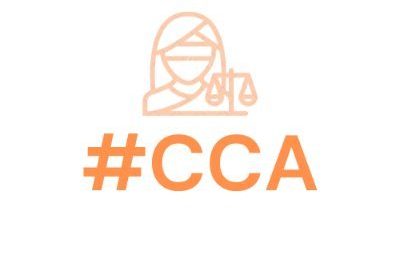
On Friday 27th of January 2023, we held a panel event at GCU on Complainer Anonymity: Reforming Scots law with support from the Clark Foundation for Legal Education. The event was de
signed to be a panel-based session, which allowed for presentations from key stakeholders, with different perspectives to share, as well as allowing for audience participation. Over 40 attendees registered to attend the event, which included students, scholars, lawyers, policy-makers, campaigners, and members of the public. Our speakers included staff and student members of the campaign team, including:
Emma Smith
Emma Smith is a fourth-year law student at Glasgow Caledonian University where she
volunteers with the Campaign for Complainer Anonymity. Emma is also the Co-Student
Director of the GCU Law Clinic, offering free legal advice to those who cannot afford it.
Dr Andrew Tickell
Andrew Tickell is a senior lecturer in law at Glasgow Caledonian University with teaching
interests in criminal law and evidence, constitutional law, and media law. In September
2020, he founded the Campaign for Complainer Anonymity with Seonaid Stevenson-McCabe. Since, his research has focused on a comparative analysis of how different
jurisdictions have legislated for complainer anonymity in the social media age.
Kate Thompson
Kate Thompson (she/they) is the Justice Policy worker with a split capacity between the Scottish Women’s Rights Centre and Rape Crisis Scotland. Prior to this role she worked as a Procurator Fiscal Depute, a criminal defence solicitor and as a Children’s Reporter. As a
feminist, she also has an interest and involvement in queer and environmental activism. Kate studied Law at the University of Edinburgh and thereafter a Diploma in Legal Practice at the University of Glasgow.
Cameron-Wong McDermott
Cameron-Wong McDermott (he/him) is a policy officer at the Children and Young People’s
Commissioner Scotland. He previously worked as a lawyer in the Registry of the European
Court of Human Rights, where he assisted in the drafting of judgments concerning the UK
and Ireland. He has also worked as a solicitor in Scotland, for the Equality and Human
Rights Commission and in private practice.
Catriona Stewart
Catriona Stewart is writer-at-large and a columnist for The Herald, allowing her the scope to cover a wide array of subjects. She specialises in politics, social affairs and feminist issues. Catriona was previously Chief Reporter for The Glasgow Times, a role with a particular focus on crime and court reporting, education, and the complex social issues in the city’s south side. Her career in newspapers has included arts reviewing, foreign reportage and feature writing. Catriona also works in broadcast and is a regular contributor to radio and television both in the UK and overseas. She has been a children’s panel member for 10 years; is currently secretary of Women in Journalism Scotland; a journalism mentor; and is a project supervisor for Masters students at the University of Glasgow.
Discussion
With the Scottish Government having committed to reform, the event sought to explore some of the finer details around complainer anonymity reform. Lessons from other jurisdictions have shown that reform must be carefully considered and it was hoped that this event would contribute to the discussion. Discussion focused on:
- The current legal position
- Exploration of why this is an important for complainers and some of the work that
Rape Crisis has been doing in this area - The particular issues which arise in the context of children and anonymity and the
international human rights framework at play - The particular challenges there are for journalists reporting on cases involving
anonymity, really speaking to the practical considerations around law reform for the
media.
Presentations were then followed by a panel discussion, which explored important policy questions including:
- When should the right to anonymity take effect?
- How should it take effect? Automatic? Granted by judges?
- What offences ought to be included?
- When should the right to anonymity end?
- What should any ‘waiver’ process involve?
- Under what circumstances can/should anonymity be set aside?
From the perspective of the CCA, the event was a real success. Being able to hear from a
diverse range of speakers – including a working journalist – allowed us to tease out key
issues that are likely to arise once a Bill is introduced. The inclusion of a journalist in the
panel became increasingly important to the team when the Consultation responses to the
proposal were published. While lawyers and legal academics had contributed to the
process, it was clear that there was a lack of engagement with the media. Given the nature
of this reform, and the purpose of our event, we thought it important to include a diverse
range of stakeholders.
